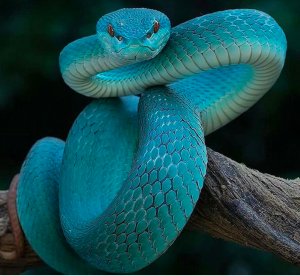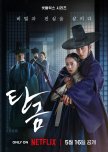This review may contain spoilers
unfair pain.love.revenge
Incredibly intense and emotionally piercing!
Truly not for the faint-hearted.
This is by far Jae Wook’s finest film to date.
Undeniably, he poured a tremendous amount of effort into portraying this character — it was palpable.
I’m speaking of his performance, the character’s emotions… and the visual storytelling.
He delivered exactly what the director envisioned.
A powerful film — on par emotionally with The Wolf, maybe even more stirring.
My absolute favorite moment was the scene where Hong Rang, in tears, finally opens up to Jae Yi — revealing his lifelong suffering since childhood.
He confesses why he hid the truth from her for so long — that he wasn’t her brother — because he had fallen for her and feared losing her.
He believed he wasn’t worthy of her affection due to the trauma and mistreatment he endured.
That scene, where he weeps and she cries with him, was heart-wrenching and beautifully done.
It captured the raw emotion of someone who had been unjustly broken from a young age and finally found the courage to bare his soul to the one he loves.
At one point, he was even ready to let her go, expecting nothing in return.
Jae Yi, too, had feelings for him — but was afraid of what it meant, believing her love was forbidden since she thought he was her brother.
That one scene, despite the brilliance of the entire movie, was the most moving of all.
The emotions in this film are absolutely overwhelming — a true emotional rollercoaster.
Despite being a period piece with a somewhat tangled plot at first (and some unclear roles like the mysterious albino character, whose connection to the sadistic artist remains vague), the film still shines.
It conveys a profound and pure love between two people — a love that survived abuse, humiliation, and self-loathing.
They were treated like objects, manipulated and scarred by others for selfish reasons.
Yet these two found the strength to forgive each other for the unspoken truths and chose to love in spite of everything.
That’s true, powerful love — love in defiance of pain.
Jae Wook delivered an outstanding performance!
It was something else entirely — a whirlwind of emotions: fury, tenderness, the thirst for revenge, and that aching sense of helplessness when you realize you can’t go back in time and undo the damage.
He was haunted by the question “Why me?”
Why was he treated this way by some egotistical madman who used children as living canvases for his sick art?
So many good people in this world suffer because of selfish or deranged individuals — people who had their own dreams, who simply wanted to live peacefully…
While watching, the injustice hits hard.
The film portrays pure affection and relentless anguish — the torment carried throughout an entire lifetime.
That feeling of degradation, the relentless inner cry of “What did I do to deserve this?” — it’s the emotional core of someone who just wanted to live but was reduced to an object against their will.
Anyone who’s ever been unfairly hurt will likely resonate deeply with this story…
That overwhelming swirl of emotions — it’s hard to ignore.
In the final scene, I couldn’t help but wonder — would it have been better if Hong Rang had chosen not to retaliate and simply lived happily with Jae Yi?
Or was it right for him to seek justice — to fight back against the one who ruined him?
In the end, though tragic, it felt like he left with peace in his heart… beside the one he truly loved.
It’s heartbreaking how often a love that pure ends before it ever has a real chance — all because of others’ cruelty.
I was shocked to discover that Jae Yi’s father knew everything and still protected the artist just to maintain his image — that was horrifying.
Her mother (though apparently not biological) seemed to have more sense than her husband.
And then there’s Moon Jin — he shocked me too.
He should’ve been grateful for what he was given, but instead he became greedy, reaching for what never belonged to him.
Even though he had a good life compared to many, it wasn’t enough.
In another version of the story, maybe the "impostor" Hong Rang could’ve been saved…
Moon Jin also came from a broken home and suffered as a child — but instead of stopping the painter, he stood by as children were brutalized.
And for what? For social standing?
It was revolting.
What’s terrifying is that people like him — like the painter — exist in real life.
And it’s always the good ones who suffer because of them.
I’m not good at writing reviews — I’m just trying to express how deeply the actor embodied this role.
Everything hinged on emotion — be it love, grief, or anguish.
This film had it all — but what struck the hardest was the pain.
Unjust, undeserved pain — that was the heart of the story.
And in the end, at least the character found love… and peace.
Anyone who’s suffered in life will see themselves in Hong Rang.
And really… why do good people always end up paying the price for others’ cruelty?
Truly not for the faint-hearted.
This is by far Jae Wook’s finest film to date.
Undeniably, he poured a tremendous amount of effort into portraying this character — it was palpable.
I’m speaking of his performance, the character’s emotions… and the visual storytelling.
He delivered exactly what the director envisioned.
A powerful film — on par emotionally with The Wolf, maybe even more stirring.
My absolute favorite moment was the scene where Hong Rang, in tears, finally opens up to Jae Yi — revealing his lifelong suffering since childhood.
He confesses why he hid the truth from her for so long — that he wasn’t her brother — because he had fallen for her and feared losing her.
He believed he wasn’t worthy of her affection due to the trauma and mistreatment he endured.
That scene, where he weeps and she cries with him, was heart-wrenching and beautifully done.
It captured the raw emotion of someone who had been unjustly broken from a young age and finally found the courage to bare his soul to the one he loves.
At one point, he was even ready to let her go, expecting nothing in return.
Jae Yi, too, had feelings for him — but was afraid of what it meant, believing her love was forbidden since she thought he was her brother.
That one scene, despite the brilliance of the entire movie, was the most moving of all.
The emotions in this film are absolutely overwhelming — a true emotional rollercoaster.
Despite being a period piece with a somewhat tangled plot at first (and some unclear roles like the mysterious albino character, whose connection to the sadistic artist remains vague), the film still shines.
It conveys a profound and pure love between two people — a love that survived abuse, humiliation, and self-loathing.
They were treated like objects, manipulated and scarred by others for selfish reasons.
Yet these two found the strength to forgive each other for the unspoken truths and chose to love in spite of everything.
That’s true, powerful love — love in defiance of pain.
Jae Wook delivered an outstanding performance!
It was something else entirely — a whirlwind of emotions: fury, tenderness, the thirst for revenge, and that aching sense of helplessness when you realize you can’t go back in time and undo the damage.
He was haunted by the question “Why me?”
Why was he treated this way by some egotistical madman who used children as living canvases for his sick art?
So many good people in this world suffer because of selfish or deranged individuals — people who had their own dreams, who simply wanted to live peacefully…
While watching, the injustice hits hard.
The film portrays pure affection and relentless anguish — the torment carried throughout an entire lifetime.
That feeling of degradation, the relentless inner cry of “What did I do to deserve this?” — it’s the emotional core of someone who just wanted to live but was reduced to an object against their will.
Anyone who’s ever been unfairly hurt will likely resonate deeply with this story…
That overwhelming swirl of emotions — it’s hard to ignore.
In the final scene, I couldn’t help but wonder — would it have been better if Hong Rang had chosen not to retaliate and simply lived happily with Jae Yi?
Or was it right for him to seek justice — to fight back against the one who ruined him?
In the end, though tragic, it felt like he left with peace in his heart… beside the one he truly loved.
It’s heartbreaking how often a love that pure ends before it ever has a real chance — all because of others’ cruelty.
I was shocked to discover that Jae Yi’s father knew everything and still protected the artist just to maintain his image — that was horrifying.
Her mother (though apparently not biological) seemed to have more sense than her husband.
And then there’s Moon Jin — he shocked me too.
He should’ve been grateful for what he was given, but instead he became greedy, reaching for what never belonged to him.
Even though he had a good life compared to many, it wasn’t enough.
In another version of the story, maybe the "impostor" Hong Rang could’ve been saved…
Moon Jin also came from a broken home and suffered as a child — but instead of stopping the painter, he stood by as children were brutalized.
And for what? For social standing?
It was revolting.
What’s terrifying is that people like him — like the painter — exist in real life.
And it’s always the good ones who suffer because of them.
I’m not good at writing reviews — I’m just trying to express how deeply the actor embodied this role.
Everything hinged on emotion — be it love, grief, or anguish.
This film had it all — but what struck the hardest was the pain.
Unjust, undeserved pain — that was the heart of the story.
And in the end, at least the character found love… and peace.
Anyone who’s suffered in life will see themselves in Hong Rang.
And really… why do good people always end up paying the price for others’ cruelty?
Was this review helpful to you?





